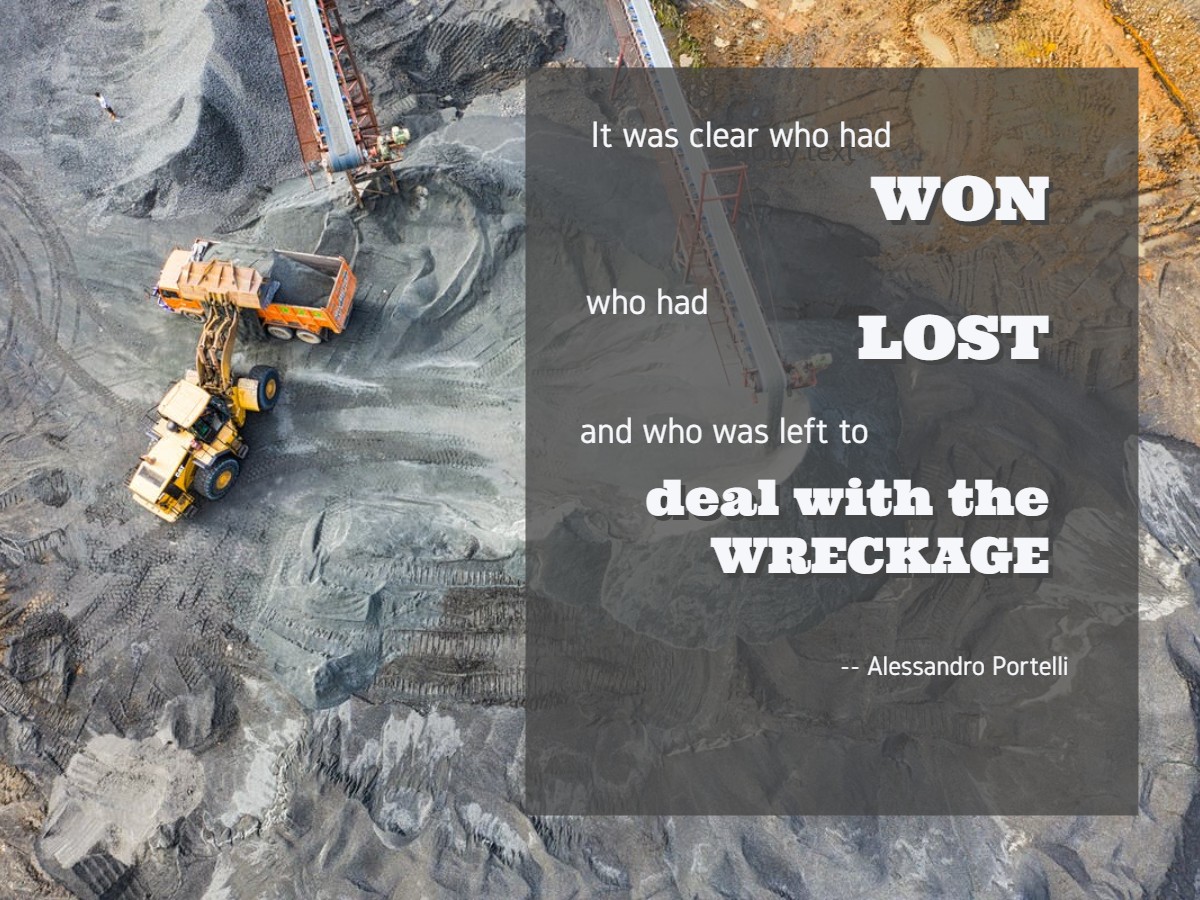They Say in Harlan County by Alessandro Portelli is not, understandably, every reader’s cup of tea (or jar of moonshine, given the subject).
It’s an oral history gathered in perhaps the most quintessential Appalachian county there ever was. Since I’ve got a soft spot for Appalachia — nope, I’m not ashamed of my Kentucky grandfather — I read this kind of stuff.
What is quintessential Appalachia?
Isolation. Farming on steep hillsides. Snake-handling at church. Feuds. Coal mining. Coal strikes. Great Society do-gooders. And, by now, strip mining and OxyContin addiction.
I’ve read (in other Appalachian books) that people progress from 1) subsistence farming to 2) farming with side projects to raise petty cash to 3) jobs that support the family on their struggling farm to 4) full-on dependence on wages. The same pattern played out in Ohio, Oklahoma, Oregon — everywhere.
It was coal that pulled Appalachian families along this continuum. It’s easy to see, in Portelli’s chapters, the mistakes that led to coal miner strikes decades later. However, I’m old enough to not be smug about today’s good idea turning into tomorrow’s Oh-no-what-have-we-done?
As for the Great Society do-gooders, they tended to be Ivy League kids who understood nothing about life in these hills. Harlan county people had enough pride and smarts to send these rich kids back where they came from.
Portelli reveals his biases early on. There’s nothing he admires more than a good Fight-for-the People Communist. In fact, I skipped several exhaustive chapters on the many coal strikes.
But he also has a knack for getting people to talk. Yeah, he may have done more talking to the pugnacious picket-sign types. Still, I came away with the sound of these voices in my head, the flavor of Harlan County life. Portelli listened and, when people find someone who listens, who shows respect, who asks follow-up questions, their stories pour right out of them.







Leave A Comment